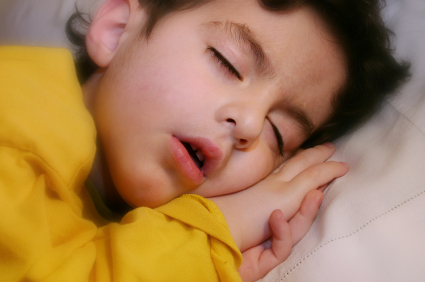 Her concern was palpable as she spoke about her son. Almost in middle school, the boy had learning and attention difficulties. As someone with a healthcare background, she knew enough to alert her son’s pediatrician to the child’s lifelong snoring but was told “not to worry.”
Her concern was palpable as she spoke about her son. Almost in middle school, the boy had learning and attention difficulties. As someone with a healthcare background, she knew enough to alert her son’s pediatrician to the child’s lifelong snoring but was told “not to worry.”
That’s when she contacted me. Should she get a second opinion? she wondered. Yes, I told her—without a moment’s hesitation.
It is becoming an unsettling scenario: children with undiagnosed sleep problems slowly developing potentially lifelong social, emotional and learning deficits.
And it’s not isolated.
A new Pediatrics study of 11,000 children—of which I’m the lead author—found that children who have snoring, mouth-breathing and pauses in nighttime respiration (a constellation of symptoms known as sleep-disordered breathing), as well as those who have behavioral sleep problems, can have trouble learning when they’re older. Among children with a history of sleep problems before age 5, there was increased need for special education.
This topic has struck a nerve with parents. It’s the largest study of its kind ever conducted. In March, I documented a link between sleep-disordered breathing and socio-emotional and behavior problems. Following that study’s release, also in Pediatrics, I received many phone calls and e-mails from around the world, including from the woman referred to above. As a researcher, not a clinician, I suggested they speak with their children’s doctors. (See related video and hear the sound of sleep-disordered breathing.)
The facts are stark. Even when you remove factors such as premature birth or low socioeconomic status—which might predispose a child to special education—we find that a history of sleep-disordered breathing alone increased the odds by 40 percent of a child having a special educational need. A history of behavioral sleep problems increased these odds by 7 percent for each year the parent reported such a problem. And even when a child’s IQ score was factored in, sleep was still an independent risk factor.
There is an acute need for heightened vigilance with young children exhibiting developmental disabilities or delay, who suffer from both types of sleep problems at two or three times the rate of typically developing children. Many of these are among the three million students between the ages of 6 and 21 receiving special education in the United States. Their sleep symptoms are much like those seen in children with developmental delay, learning disability and autism spectrum disorders, and between 40 and 80 percent of these children also have attention deficit disorder or attention deficit hyperactivity disorder.
So what can be done?
Parents and teachers should take early note if children seem routinely to have problems initiating and maintaining sleep, if they regularly snore or if they have breathing pauses in sleep. Childcare providers and teachers should alert parents to children’s napping problems and persistent daytime sleepiness. Parents in turn should address these concerns with pediatricians.
Doctors need to take these symptoms seriously. Snoring is not benign in young children.
Hammering this point home are the recently released guidelines, aimed squarely at clinicians, from the American Academy of Pediatrics on the diagnosis and management of childhood obstructive sleep apnea.
Several months ago, the mom I spoke about earlier contacted me again. She had pressed for an overnight sleep study for her son based on our conversation. The result? The sleep medicine physician who examined the results told her the boy had the worst case of childhood sleep apnea that he had ever seen.
Unfortunately, there are thousands of children with undiagnosed behavioral and sleep-disordered breathing. This is a problem that needs to be taken more seriously.
Behavioral sleep problems need to be addressed before becoming habitual and potentially leading to a lifetime of social, emotional and physical difficulties.
Ensuring that your children have the best future is worth your attention. Please listen as they sleep.

